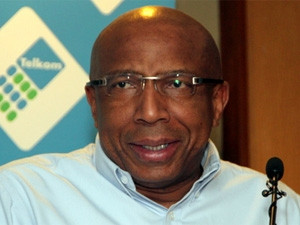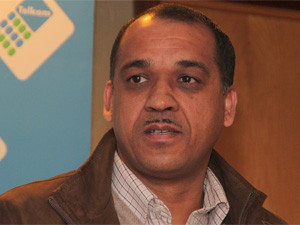
As Telkom seeks to cut costs out of its base, partially by eliminating thousands of jobs, questions are being raised as to whether its efforts to become sustainable will have the opposite effect, and leave the labour-intensive company unable to operate.
The fixed-line monopoly this morning confirmed it aims to remove at least R1 billion in expenses every year for the next five years, and that jobs will definitely be part of this cost-cutting exercise. Although numbers have yet to be detailed, talk is that as many as 7 000 of Telkom's 20 000 staff could be without work.
This latest cost-cutting bid, under CEO Sipho Maseko, follows a round of voluntary retrenchments and early retirements that saw its workforce trimmed by 1 500 employees, in a R753 million exercise last year.
Maseko is on a drive to restore the company's sustainability in the face of declining fixed-lines and a cost-heavy base. However, there are concerns that cutting thousands of staff - including technicians - could hamper the company's future growth prospects, which hinge around convergence.
Its latest full-year figures, for the year to March, show its increasing top line pressure, because of dwindling voice revenue, which led to the company's income dropping from R33.7 billion in 2012 to R33.1 billion.
However, Telkom's cost base is almost flat, with operating expenses only coming off 2.2% year-on-year, despite the lower income, to R32 billion on a normalised basis.
Must do
Absa Investments analyst Chris Gilmour says this is not a tenable situation, as operating expenses should move in line with revenue growth. Yet, Telkom is battling to grow its income in an economy with a sluggish 2% growth rate, persistent high unemployment and a saturated mobile market, he says.
Gilmour notes the "only way out" for Telkom is to reduce its expenses. Maseko previously said Telkom wants to end the year to March 2014 with expenses flat year-on-year, a target that can only be measured when it releases its results in the next few months.
Maseko said several areas are being looked at, including the best option for its extensive and expensive property portfolio. Telkom is putting in a multi-year process to cut costs on a sustainable basis, with measures extending outside of the company, as Telkom will be asking suppliers to "eat" into inflation, he added.
Gilmour says trimming jobs will have a multiplier effect on Telkom's operating expenses, benefiting its bottom line, because fewer staff also means lower pension fund and medical aid contributions.

However, a problem will arise if Telkom is not overstaffed or has the wrong people in the wrong jobs, which could cut into its core, says Gilmour. He notes fixed-line is, by its nature, labour-intensive, although he does not have comparative ratios to determine whether Telkom is staff-heavy.
Gilmour adds Telkom cannot afford to add to SA's persistently high unemployment rate, and government will be concerned over any further job losses. The state owns just shy of 40% in Telkom, with its Public Investment Corporation owning about another 10%.
Solidarity spokesman Marius Croucamp says just cutting costs could be counter-productive, as the company could lose critical skills, but this is hard to say without an indication of the company's strategic plan, which has yet to be revealed.
South African Communications Union president Michael Hare, who suspects as many as 1 500 staff from management and bargaining council level could be out of work this year, notes Telkom cannot afford the purge.
Hare says Telkom will not be able to maintain its service level, because the job is labour-intensive, and it is "shooting itself in the foot" by cutting staff. In addition, the company's move to the next-generation network will not be efficient enough to offset the skills it will lose, he notes.
The news of pending retrenchments seems to be an April fool's joke, but that date has long gone, says Hare.
Dismayed unions
Hare echoes the sentiments of Telkom's other two unions - the Communication Workers Union (CWU) and Solidarity - all of which were taken by surprise.
Ovum analyst Richard Hurst says Telkom needs to maintain key technical skills, but briefing media before staff could lead to top people leaving beforehand, which the company cannot afford.
CWU spokesman Toto Ntehu said the union was not aware of pending job losses at Telkom and had no formal communication from the company. This is despite a meeting at the telco, involving all three unions and management, yesterday, he says. "I'm hearing this for the first time."
CWU represents 38% of Telkom's 20 000-odd workforce, while the other two unions combined have 35%, with SACU being the second-largest body. Some 13 998 of Telkom's bargaining unit employees were unionised as at 30 September 2012.
Croucamp adds no formal notification has been sent. However, a top-level strategy meeting is set for 25 April, after which negotiations will start, says Hare.
Croucamp expects more clarity at this meeting, while Hare anticipates retrenchments to take effect from about mid-year, after the elections. Croucamp says the sentiment at Telkom is not good and the relationship between unions and Telkom is strained.
Share